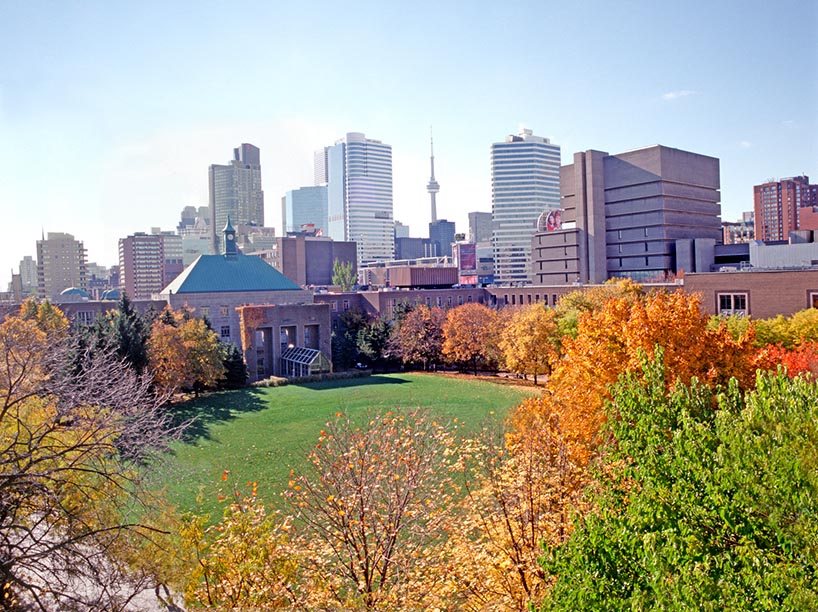Expanding access to education for students with precarious immigration status

The Sanctuary Scholars program addresses the barriers that students with precarious status face to provide a pathway for them to continue their education at TMU.
Students with precarious immigration status can enroll in elementary and secondary schools in Ontario, but accessing post-secondary education is often difficult, if not impossible. The new Sanctuary Scholars program at TMU is currently providing 20 students access to pursue post-secondary education and gain credentials, develop skills and build networks to help achieve their goals.
“Students who hold different forms of precarious immigration status are being excluded from post-secondary education in Ontario and across Canada,” said Tanya Aberman, program manager for Sanctuary Scholars, offered through the TMU Office of Social Innovation.
“These students may have completed high school here, or they may have graduated from high school before coming to Canada, but their immigration status means that they watch their friends and peers pursue educational goals while they are left waiting, sometimes for decades, for their immigration status to be resolved.”
Students in the Sanctuary Scholars program are eligible to pursue most of the undergraduate degrees offered by the university at domestic tuition fee rates. “Students have described this new opportunity as life changing, as they are now able to continue their studies and pursue their dreams,” said Aberman.
"The Sanctuary Scholars program builds on TMU's shared responsibility as a community to ensure an environment where barriers to participation can be removed," said Roberta Iannacito-Provenzano, provost and vice-president, academic. "Creating the program was an incredible collaborative achievement, and we could not be more pleased to have welcomed our first cohort of students."
Providing support for unique needs
The term ‘precarious status’ includes people who have made immigration applications, such as: refugee claims, refused refugee claims, humanitarian and compassionate ground applications, pre-removal risk assessment applications, people on temporary resident permits and those who have no immigration status.
“There is a lot of stress and trauma that comes with having precarious immigration status. Waiting in immigration limbo means that students who hold precarious status have often been excluded from accessing different opportunities, services and supports, and have had little control over their immigration processes or the time they take. Approaching these situations with empathy and compassion is really important,” said Aberman.
There are many additional barriers that students in the program might face. For instance, they do not have access to the Ontario Student Assistance Program (OSAP) and there are very few scholarships or bursaries available to them.
Proactively addressing barriers to education
The Office of Social Innovation has worked to identify and address any barriers that might limit students' full participation at TMU.
For example, confidentiality needs to be maintained for students who have precarious immigration status. Disclosure of their status can subject them to stigma and discrimination, potentially putting them at further risk of harm. Students are frequently asked for ID and other documentation, for example when they get their OneCard or apply for placements in various programs. The Sanctuary Scholars program ensures that students are not asked for these or don’t get penalized for not having them available.
“It was inspiring to work with the Office of Social Innovation to build this program and witness the team’s compassion and proactive support. I am proud that as an institution, TMU sees access to education as fundamental and a right," said Tanya De Mello, vice-president, equity and community inclusion.
“Access to education empowers individuals, promotes economic development, increases social mobility and reduces social inequality. Education also plays a vital role in fostering engaged community members who can contribute to a more equitable society and address complex global challenges.”
Through the new program, learners can work closely with Aberman to work through any obstacles they face at the university or in the broader community. Sanctuary Scholars can also access the full range of supports available to all students across the university.
“It’s not an easy journey, but students have expressed such great excitement about starting university, and have shared what a great time they have had in their first couple of months as they discover their classes and make new friends,” Aberman shared.
To mark the launch of the Sanctuary Scholars program, the Office of Social Innovation has organized a series of events and activities. For details, visit the program’s website.